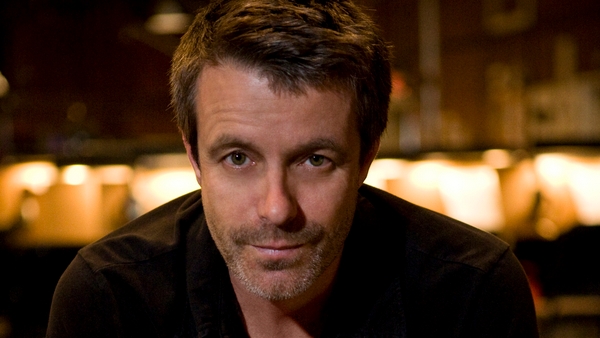 A veteran of the film music world Harry Gregson-Williams has composed scores for more than 50 films including The Town, the Shrek series, The Chronicles of Narnia, and many, many others (including the Metal Gear Solid video game series), in addition to a slew of Tony and Ridley Scott films which make up a large portion of his career.
A veteran of the film music world Harry Gregson-Williams has composed scores for more than 50 films including The Town, the Shrek series, The Chronicles of Narnia, and many, many others (including the Metal Gear Solid video game series), in addition to a slew of Tony and Ridley Scott films which make up a large portion of his career.
In Part I of our exclusive interview we talked about his recent film The East and learned that the success and bulk of the score was less to do with him and more his assistant Halli Cauthery getting his big break on an amazing film.
Harry was extremely open to this interview and touched on a number of topics. So much so that I honestly couldn’t have asked the types of questions that prompted these kind of responses. Once he got rolling it was pretty much just a string of consciousness and I’m so glad he was willing to talk about all you are about to read. We discussed, rather I just sat and listened as he shared his experiences, his own big break into film scoring, his close relationship with Tony Scott and shared some insight into his amazing body of work.
So without further ado, because again there’s a lot to get through, here is Part II of our exclusive interview with film composer Harry Gregson-Williams.
——————————————————————————————————————————-
– The Scott Brothers are known for being perfectionists but they’ve put their trust in you time and again. So when you’re working for and with them how much of the process is “Harry we need more” or “No this isn’t it at all“, or do they give you total freedom and let you have your way?
No, no, no *laughs* they don’t let me have my way and never have done. There’s no such thing as that with either of them. Even more so with Tony. With Ridley perhaps. My experiences with Ridley are fairly limited, they’re not that much. Movies like Life In A Day and The East I’ve come to quite late in the process in an unconventional role, unlike being legitimately hired to be “the” composer and getting on and doing it. With Life In A Day it was pretty much a re-score. With The East, as I said, it wasn’t all my music mostly Halli’s in there. But with Kingdom of Heaven obviously it was a huge, huge voyage to go on with Ridley.
I think on that film I probably wrote more than 4 hours of music. The movie was about 5 hours long when I got started. I had to move my whole studio to London because that’s where Ridley was cutting it which didn’t really suit me. I had spent 8 or 9 years building up my own studio in Venice Beach to be what it is and to enable me to be able to operate on the scale that I was operating on. So then to be asked to pack it all up and to move it to London where I don’t have a studio, just some office park somewhere, and then transport my stuff over and find new ways of doing things and new people to come in and help get the score done, it wasn’t a dream job in terms of convenience. But it turned out to be a dream job in terms of creating the cues for that film. On the surface it looked like a bit of a difficult one for me. I mean imagine yourself with your team around you, the actual room you’d compose in, the rooms you’d record in, and, I don’t know the place where you’d have lunch. There’s familiarity in the way you set up things to be done in your own way, the way you’re used to doing things, and then actually have to stop doing that and turn around to do this big big score, in terms of volume of music somewhere else and doing it any other way can make you feel bit vulnerable, you know. So there was that to contend with but I have to say the voyage was definitely worth it, I love that movie, I thought it was a phenomenal piece of film not to mention a great looking movie as well.
But with Tony it’s completely different. Tony had me in my studio scoring his films time and time and time again and we got used to being in the same place, being in the same rhythm and I think that’s what we built on. Just before I decided I would go on sabbatical and take a rest from film scoring I called Tony. We were in between movies and had just finished Unstoppable and I called him and said “listen Tony, I’m really nervous that I’ll never hear from you again if I leave”. Tony is very prolific and I knew he was going to come out with another movie during the year I was gone and if I was going to be true to my wishes in my sabbatical and my teaching I was going to have to say no and that would be the first time I had ever done that with Tony Scott.
Now it was a little bit awkward because I didn’t know if he had another movie in production or not and so it was like I was turning
down a movie I wasn’t being offered you know what I mean? It was a little tricky for me but I just wanted him to know I wasn’t going to be here in L.A. in the coming year. I left in July and he died in August. So back to our call, he said to me, “I know H, I know you’re leaving”. I said “What?!? You’re the main person I had to tell. No one else knows, that’s why I’m calling, to tell you. How could you know?” He said, “H, I’ve got intel” *laughs* I felt like it was something out of one of his movies. But somehow one of his assistants had found out or something and he calmly told me “I knew that’s what you were planning.” So I said, “I just want you to know that if I miss one of your movies I hope you’ll come back to me”. And he said, “look, you’re my first choice now and you’ll be my first choice when you come back…now piss off!”. That was the last I heard of him and the last time I spoke to him. But it gave me such confidence to go. It was a difficult time but he was very supportive and gratifying but he was very very supportive. Again, he’s meant everything to me.
– Wow. Well it was a devastating loss to lose Tony and I really thank you for sharing that little story. You talked about helping Halli get his foot in the door so can we step back a bit and talk about how Hans Zimmer helped you get your foot in the door?
Oh, it was in a very similar way, there’s not much else to say other than that. It was in a very Hans-ian way. He was very generous and the film that made all the difference for me and John Powell was Antz. We were both at Hans’ studio assisting. I had done a few movies with him, John had done one by himself with his own credit, certainly by any stance we were both just starting off really and this movie Antz came along. It was coming directly to Hans from Jeffery Katzenberg with DreamWorks. Hans couldn’t do it which is when we got involved but I don’t think Hans wanted to see it go to some other random composer, he’d like it to “stay at home” as he would put it. So I think he turned them on to me or John and then they settled on both *laughs*
Then after Antz we did Chicken Run, and we couldn’t have messed those up too bad because they asked us to do Shrek. After Shrek we just called it a day because we wanted to branch off and see what the future holds individually but I had a lot of fun and we were very very lucky to do those three very unique movies. But that was all through the generosity of Hans as our mentor.
– Hans is known for mentoring people right? Aside from yourself there’s the likes of Steve Jablonsky and Henry Jackman who are now big names in film score circles.
Well funny thing, for about 5 years Steve Jablonsky was my assistant when I was here in L.A. and he was so good that I had to boot him out. I said “look, you can’t be scratching around underneath my desk like a little mini-Me, that’s just not right. You’re too good, you’ve got to be composing”. So I told him that “as much as it pains me to give you up to the world, I have to give you up to the world”. So I did…then he went on to assist Hans Zimmer and from there he got to where he was going to go.
So yeah, I know all about that *laughs* but Hans has that sort of reputation and that’s what he likes to do. Although I’ve remained very close contact with Hans, he’s a great friend of mine and always will be, I don’t have anything to do with his studio any longer and I haven’t for about 12 years now so I don’t know the ins and outs of who the new blood are coming out through his place. It’s expanded quite a lot since I was there.
When I arrived in L.A. in 1995 it was just 4 or 5 people. There was Hans, a scruffy long haired German technician named Marc Streitenfeld who was Hans’ tech and now Ridley Scott’s composer, Nick Glennie-Smith who was Hans’composing assistant and Nick was kind of graduating as it were, he was about to get this films called The Rock, I was assisting on that as well and that was kind of Nick’s farewell from Hans’ stable.With Nick leaving, Hans needed someone to step into Nick’s shows and assist him and that’s how I got my job. So what goes around comes around.
But Nick’s gone on to do his own things, I’ve done my own things and so has John. Hans always has his critics. He really hangs his balls on the line, always has and he has people who love him and people who can’t stand him but he causes a reaction *laughs*. Sometimes it’s not such a good reaction, but so does his music you know.
It’s not everybody’s cup of tea, this kind of power anthem and me and Hans have very little in common musically I think but we have a lot in common in how we see the film industry and our role in it. That’s why he was able to show me a lot and teach me a lot. He taught me lot about how I should deal with a director or producer. Funny bit actually he taught me that but not saying much but by allowing me to be in the room as his assistant while he was taking flack from whomever he was dealing with. He’s worked with many many directors and that was how I met Tony Scott. I got an assignment underscoring Broken Arrow, the John Woo film. I spent that whole project working at night in Hans’ studio while Hans slept, which he didn’t do very much, working on the electronic and orchestral arrangement.
I know that on record Tony talked about when he first met me, he said “Harry was fast asleep on Hans’ couch when I came into listen to some music one day”. *laughs* I remember that, being startled and woken up by this guy walking in and I was like damn, I don’t think I should be asleep if directors are going to be coming in and out of here. So things change, times change and I can’t speak for Hans’ stable now as it were but that’s how things happen sometimes and again I was incredibly lucky to be where I was to have these opportunities early on.
I know it’s different if you want to be a director or producer but as a composer, or a wannabe composer, the best you can do is to work for a very busy, cool composer and see how it all goes. Unless you’re some genius, some freak of nature who walks into this town and just because his music is so great scores the
next Spielberg film, its not gonna happen, I don’t think. There’s kind of a pecking order and a process that you’ve got to go through, a learning curve and so, as I’ve found, just hook yourself up to a busy fun composer, someone who does more than one film in a year. That’s what was so fun about being Hans’ assistant.The amount of challenges that were thrown at you helps make you at the time into who you will be in the future.
I remember one time Hans was doing a Jim Brooks movie, As Good As It Gets, and there was a song at the end of the movie that they wanted to have, it’s that Monty Python song, “Always Look On the Bright Side of Life”. I was at Media Ventures and I was at Hans’ place and been assisting a little bit on that movie. But I had been working on my own and I was someone who people would go to when they had something that needed doing, but Hans walked into my little studio one day and said “I need you to do an arrangement of Always Look On the Bright Side of Life for the end of this move. Do it like a big men’s choir, but it’s going to be ironic fun, silly, charming, all those things. So do the arrangement, Jim and I will come listen to it so get off to London… and by the way this has got to happen in 24 hours. Once you get to London, get the men, whom I’ll book, get to Abbey Road and record it. Then get on a plane to Boston and you’ll go and see Jame Taylor.”
At that point I just lost it, I was like “WHAT?! Really?!…ok, ok, now what?”. Then they told me I’d get on a little plane to Martha’s Vineyard and things became even more unbelievable as I was told I’d be picked up by a pink Rolls Royce and taken to this wood cabin. They said “It’s there you will meet James Taylor and there you will get him to sing the solo part of it above the men that you’ve just recorded in London. Then bring that back to London and we’ll be on the dubbing stage at Sony and we’ll dub it into the film but all this has to happen before Thursday.”
So I write this all down and was off to do all they asked except there was a bit of a snag. I got there and phoned Hans to tell him “look, I’m at James’ house and he’s just not going to do it. I’ve got the men’s choir on tape, but James thinks that it’s just not him.” So Hans says “ok, just get back here and with the men’s tape, we’ll come up with something else”. So I left pretty quickly, I was going to have dinner with James but I didn’t and I flew back to LA. By the time I touched down in L.A. I called in and they said Art Garfunkel was going to sing it. They told me to get to New York, call up Garfunkel, get the tape and then get back here. So these are the things that I would never get to experience let alone talk about if I wasn’t hooked up with someone as neat as Hans.
But those are the ways of Hollywood and how you can get tossed about in a musical fashion and have to learn on the job really. Learn diplomacy and learn about the industry and constantly learn how things go, could go, might go, should go. But it was my learning curve and it was steep and in a way I kind of miss it sometimes. But again, as I say, what goes around comes around in a smaller sort of way. Now I’m lucky enough to have provided a situation somewhat like that for assistants to pass through in my place.
– Wow, that’s a lot to take in Harry, it just shows you that you may have talent but sometimes it comes down to, aside from luck or opportunity, someone who believes in you looking out for you. Also sounds like an endurance race with constant learning curves no matter how much you’ve accomplished.
Very true, but also what a wild trip that life can take you on right? I hadn’t recalled that event since it happened really, but just recalling it now, I have to remind myself how lucky I was in the space of a few days to be shipped over to Abbey Road of all places and meeting all of these wonderful artists but the biggest trip was that none of these movies were mine, they were Hans’ and I was simply assisting so when people ask me how to get into the film industry I only have that one answer. Find and latch on to that really fun and busy film composer….if you can find that of course. I’m sure some film composers are as dull as dish water and dreary to work for. Don’t go anywhere near them but any film composer worth his salt is going to need an assistant or two and anyone who tells you any different is not working on the
same movies that I have.
It’s not possible for someone unless you’re John Williams perhaps. Now John is in that ultra rare position where he plays a tune to Steven and Steven says great, it’ll sound just as great when you get to orchestra but it’s not how us mere mortals do things. We have to demo every cue and that’s part of the battle, to make it sound as brilliant as we possibly can and then sell it to the director and filmmakers and then make changes. One must also become malleable and be part of the team, not be someone who will say, “there you go, that’s what you’re getting for your money”. No, no, no, no, you have to be there to be part of the creation and part of the director’s vision and maybe to show him things about his film that he didn’t even know.
– You’ve worked with some of the best and most iconic filmmakers in the industry and you’re really at the forefront of film music. But in this economy, where budgets can affect the production of the film how does that same budget affect the score?
I don’t know for sure, but look, we can use The East as a good example. It’s a small budget movie and certainly a low budget music budget. But say that it had been much more money to produce the score for The East, would it be any different? No I don’t think it would. There’s a misrepresentation in that sense and it’s all part of the art of being a film composer. So look, here’s a film, and no we didn’t shoot it for $35 Million and yeah you’re not going to get millions of dollars to produce the music for it but does that mean you get a crappy little score? No I don’t think so. Obviously things like musicians cost a lot of money, things like Abbey Road Studio One cost a lot of money. But do you really need that sort of stuff? You know, look at the filmmakers who manage to make believe you’re in the Amazon jungle when actually they shot it in Hawaii or their own backyard. We can be honest and fair about this, it’ part of the composer’s job to come up with something that’s going to suit the film despite any budgeting issues or constraints he might have. But if people aren’t spending as much money on films does that mean the music has to be poorer? No not at all.
It’s just the same as if you get a plumber to come and fix a leaky tap. He might not be able to charge you as much he could 5 years ago when his business was booming but still the tap is going to get fixed, so a budget shouldn’t affect the quality of the sound, just how you come about getting it and getting it done. That’s part of the fun of being a film composer, it’s an adventure. You never quite know what you’re going to get. For instance, with The East, you dip your hand in and get a feel and go “alright, this is kind of a spy thriller, a Hitchcockian kind of noir, a kind of retro thing. Got it”. Then go “ok we’ve got a little bit of money here and we can spend that on this or that, we can get this soloist to come in and play and can probably afford that, and then we can mix it on some analog desk in some cool studio”. It’s case by case and you just have to just shimmy with it and again it’s part of the fun and adventure of it. Conversely if you’ve got this mega budget you can get Abbey Road and probably more time than you really need to score the film, but I like to work at the other end of the spectrum because I think it creates a different sort of creative juice really.
– Well I’m really glad to hear you’ll be going back to teaching so you can take the things you’ve learned and the opportunities you’ve been given and give it to the next generation. But you do a lot, you compose, orchestrate and conduct and I’ve spoken to composers who don’t conduct, they feel it cuts down on their time with the director, but do you feel it’s necessary?
No it’s not necessary at all. I feel it’s a great opportunity and when I show up at the studio and put the first cue on the music stand and stand in front of the orchestra I’m kind of beholden to them and I really have to have done my homework before then. Yet that moment is one to savor and enjoy and get the most out of them in terms of performance. But you know it’s not really conducting. If you ask anyone who does studio conducting, which is different than if someone did the same piece at The Hollywood Bowl or something, in a studio situation 99% of the time you’ll have a click in your ear as will the musicians, that’s all they need.
The first job of the conductor is usually to keep everybody in time. But this is the last job of a “studio conductor”, the last. In fact, if you see a studio conductor waving his arms around trying to keep time, something is wrong, really wrong. These musicians play to a click, they don’t need any more than that to keep time. What they do need and can use is all sorts of demonstrative gestures that show them how best to interpret the music to get the maximum effect for the film and that’s what it’s all about, to get the individual cue to sound the best. I mean if you give the British National Anthem, a really standard very dreary piece actually, a 16 bar piece or something, and give that to four different orchestras, give them the same click and you’re going to get 4 different interpretations of that. It’s going to sound incredibly different and when I get my music in front of an orchestra the last thing they need from me is to tell them how to play it. They know how many beats in a bar, they can count and they can hear the beat in their ear. What they need from me is how I want the music played and I feel I can do that best from the conductors podium. And by the way it is the coolest job in the world so that’s why I do it *laughs* two pretty good reasons.
– Excellent. Harry I really want to thank you for your time and I want to say I’ve been a big fan of yours. Also this interview is like a little bit of closure as I was set to interview you when you we originally slated to come to Texas and perform in the Dallas Symphony’s Masters of Film series but your scheduling conflict kept you from performing. So last question, aside from the scripts you’re reading and upcoming projects, will you be conducting publicly in the near future?
Absolutely and I have spent much of my sabbatical year teaching and performing most of my scores. In fact I performed about three weeks ago at the Barbican in London and performed some Spy Game and other music I don’t normally perform as well as Shrek and Narnia which I have done a few times. But yes, I’m going to be doing more and more of that I think. I’ve got a kind of show that’s part instructive and part performance that includes clips of me playing music to picture from my scores but we also uncover how I came to do what I did and I illustrate that by bringing a mobile studio rig with me and I’l actually be doing that at UCLA next week. It’s something that interests me a great deal.
– Well again Harry thanks for your time.
Alright, thank you very much. Bye.
——————————————————————————————————————————-
We were very honored to have spoken with such an accomplished and iconic composer. Thanks very much to Harry Gregson-Williams for his time in participating and arranging this inteview. Zal Batmanglij’s The East is in theaters now.
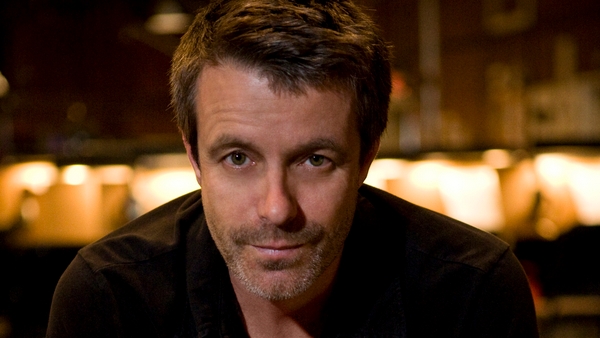
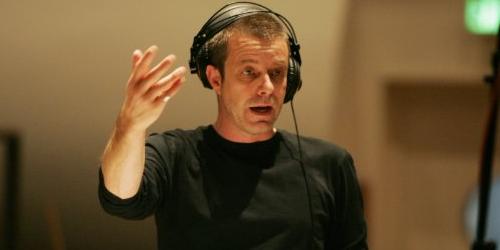
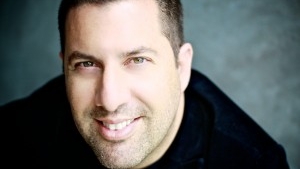
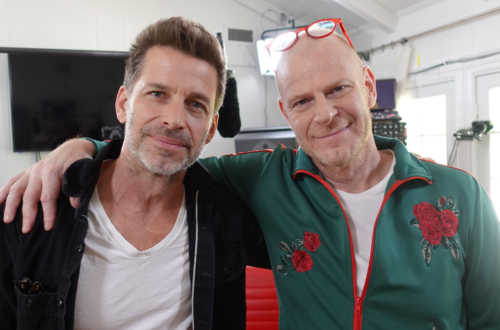
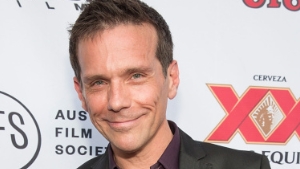
2 Comments
Adrianne
Great interview! Would’ve enjoyed hearing the audio of this one. My take away is for everyone to convey how they want their talent presented and to feel that being able to work at their passion is the coolest job in the world. Kudos.
RidgeRacer4
Thanks Adrianne it was a lot of fun talking to him. The audio is a bit spotty but I still would like to put it up. Yeah he made his career and his process sound so cool and fun because it is such a collaborative effort. Humble guy who’s been everywhere, seen everything and makes the best of every opportunity. Thanks for the comment!